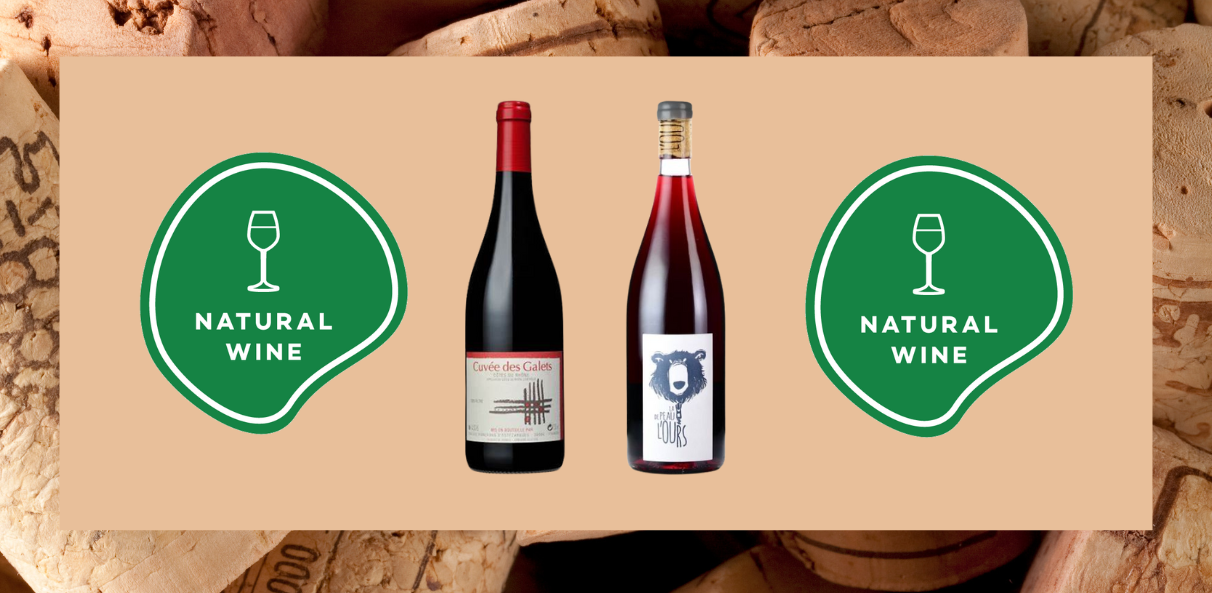What is Natural Wine?!

What is Natural Wine?
Natural wine is a term used to describe wine made with minimal intervention from the winemaker. Unlike conventional wines, which may contain additives such as sulphur dioxide, natural wines are made using only grapes and yeast. Natural winemakers believe that by using only natural methods, the wine will better reflect the terroir or the unique characteristics of the vineyard where the grapes were grown.
The winemaking process for natural wine involves minimal intervention from the winemaker. The grapes are picked by hand and are not treated with pesticides or herbicides. Once the grapes are harvested, they are crushed and the juice is allowed to ferment naturally with the yeast that is present on the grapes. Unlike conventional wines, natural wines are not filtered or fined, which means that they may be cloudy or have sediment in the bottle.
Natural wine has gained popularity in recent years due to the increasing interest in organic and biodynamic farming practices. Natural winemakers believe that by using only natural methods, the wine will better reflect the terroir or the unique characteristics of the vineyard where the grapes were grown.
History of Natural Wine
Although natural wine has gained popularity in recent years, it has been around for centuries. The ancient Greeks and Romans made wine using only grapes and yeast, and it wasn't until the 19th century that winemakers began using additives such as sulphur dioxide to preserve the wine.
In the 1960s and 1970s, a group of winemakers in France began experimenting with natural winemaking techniques. They believed that by using only natural methods, the wine would better reflect the terroir or the unique characteristics of the vineyard where the grapes were grown.
Today, natural wine has become popular in many parts of the world, with natural winemakers producing wine in countries such as France, Italy, Spain, Australia, and the United States.
Characteristics of Natural Wine
Natural wine has a number of characteristics that set it apart from conventional wines. One of the most noticeable differences is the taste. Natural wine tends to have a more complex and nuanced flavor profile than conventional wines. This is because the wine is made using only natural methods, which means that the wine will better reflect the terroir or the unique characteristics of the vineyard where the grapes were grown.
Another difference between natural wine and conventional wine is the appearance. Natural wine is often cloudy or has sediment in the bottle. This is because natural winemakers do not filter or fine the wine, which means that the wine may have particles in it that would be removed in conventional winemaking.
Finally, natural wine tends to have lower levels of alcohol than conventional wines. This is because natural winemakers do not add sugar or other additives to the wine, which means that the alcohol content will be determined by the sugar content of the grapes.
Benefits of Natural Wine
There are several benefits to drinking natural wine. One of the main benefits is that natural wine is made using only natural methods, which means that it is free from additives such as sulphur dioxide. This can be beneficial for people who are sensitive to sulphites, which can cause headaches and other symptoms in some people.
Another benefit of natural wine is that it tends to be more environmentally friendly than conventional wines. Natural winemakers use organic and biodynamic farming practices, which means that the grapes are grown without the use of pesticides or herbicides.
Finally, natural wine is often made in small batches by independent winemakers. This means that natural wine is often more artisanal and unique than conventional wines, which are often mass-produced.
Conclusion
Natural wine is a term used to describe wine made with minimal intervention from the winemaker. Natural winemakers believe that by using only natural methods, the wine will better reflect the terroir or the unique characteristics of the vineyard where the grapes were grown. Natural wine has gained popularity in recent years due to the increasing interest in organic and biodynamic farming practices. Natural wine tends to have a more complex and nuanced flavour profile than conventional wines, and it is often more environmentally friendly than conventional wines. Ultimately, natural wine is a unique and artisanal product that is worth exploring for anyone who is interested in wine.
Browse our Natural Wines here....







Comments : 0